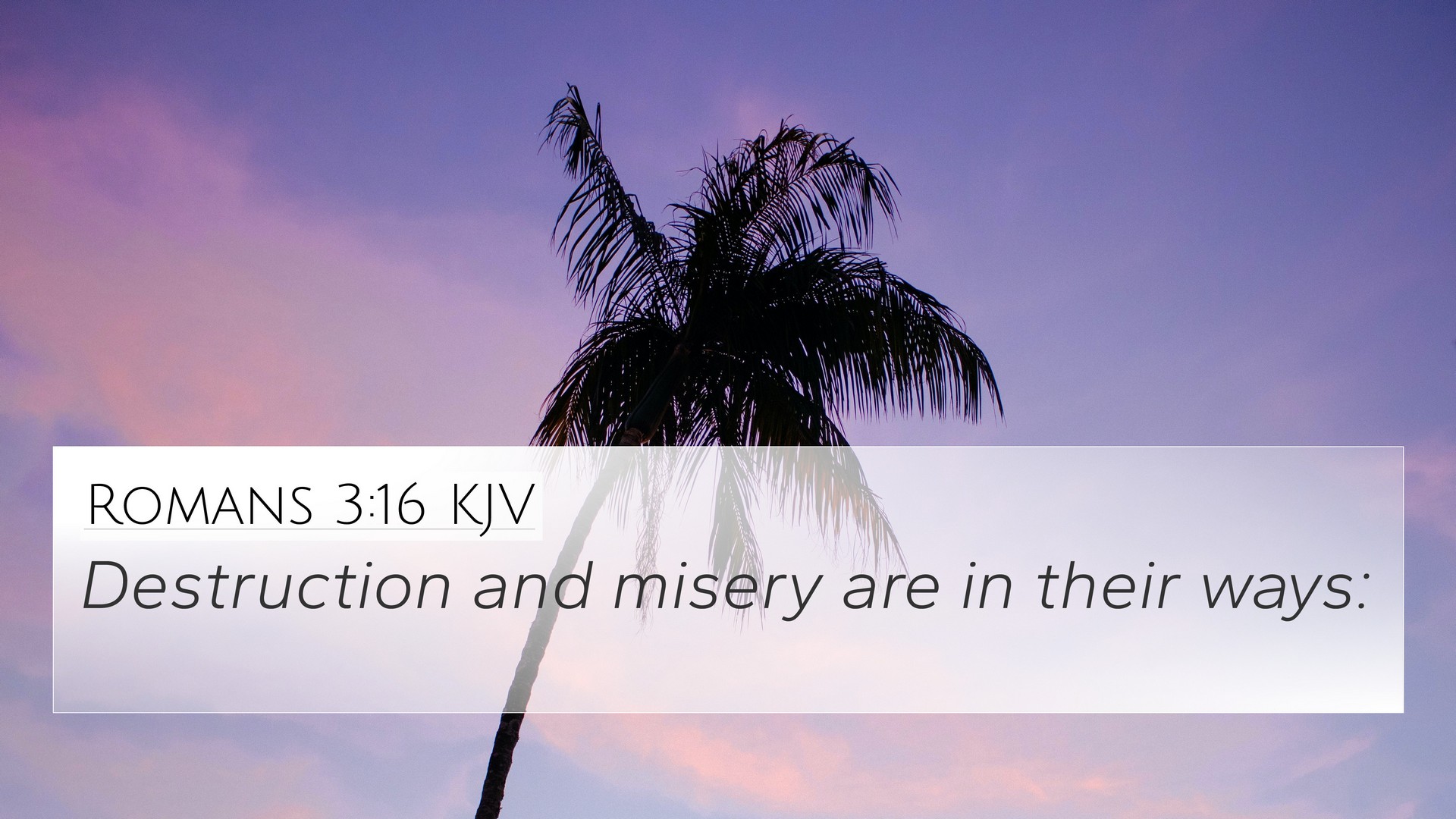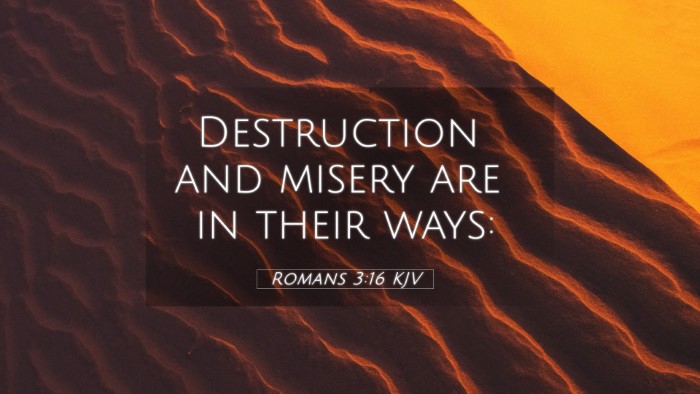Understanding Romans 3:16
The verse Romans 3:16 states: "Destruction and misery are in their ways." This passage highlights the consequences of sin and the ultimate destruction it brings upon humanity. To gain a fuller understanding of this verse, we can combine insights from notable public domain commentaries.
Interpretations and Insights
Here we provide a summary from several commentaries:
-
Matthew Henry:
Henry emphasizes the breadth of human depravity and the moral corruption that stems from sin. He identifies that the presence of destruction and misery in human life is a direct result of turning away from God. When people follow their own ways rather than God’s path, they bring ruin upon themselves and their relationships.
-
Albert Barnes:
Barnes notes that this verse serves as a stark warning about the realities of sin. He explains that the "ways" refer to the personal conduct of mankind, illustrating that the result of sinful paths leads to inevitable sorrow and pain. Barnes draw parallels with other scriptures that depict the consequences of ungodliness.
-
Adam Clarke:
Clarke elaborates on the implications of the phrase "destruction and misery," connecting it to the nature of the existence of those who reject divine guidance. He suggests that God's righteous judgment is evident in the suffering caused by straying from His truths, reflecting Clarke's broader theological views on divine justice.
Connections with Other Bible Verses
Romans 3:16 can be cross-referenced with various scriptures that support and expand upon its themes:
- Proverbs 14:12: "There is a way that seems right to a man, but its end is the way of death." This verse parallels the concept of misguided paths leading to destruction.
- Isaiah 59:7: "Their feet run to evil, and they make haste to shed innocent blood." This connects with the consequences of pursuing sinful ways.
- James 1:15: "Then when desire has conceived, it gives birth to sin; and sin, when it is full-grown, brings forth death." This highlights the progression of sin leading to destruction.
- Romans 6:23: "For the wages of sin is death, but the gift of God is eternal life." This directly relates to the cost of sin reflected in Romans 3:16.
- Galatians 6:7: "Whatever a man sows, that he will also reap." This reflects the idea that one's actions bring consequences.
- Ezekiel 18:30: "Therefore I will judge you, O house of Israel, everyone according to his ways, says the Lord." This verse emphasizes individual responsibility in one’s path.
- 2 Corinthians 5:10: "For we must all appear before the judgment seat of Christ." This highlights the accountability of one’s actions, resonant with Romans 3:16's implications.
Thematic Connections
Through examining Romans 3:16 alongside these passages, we can see a thematic dialogue on sin, its consequences, and the overarching need for redemption. Such cross-references serve as tools for Bible cross-referencing that deepen understanding of scriptural teachings.
Tools for Bible Cross-Referencing
For those wishing to explore the connections between Bible verses more deeply, here are some helpful resources:
- Bible concordance
- Bible cross-reference guide
- Cross-reference Bible study methods
- Bible reference resources
- Comprehensive Bible cross-reference materials
Conclusion
Romans 3:16 serves as a poignant reminder of the destructive nature of sin and the importance of aligning oneself with God's ways. Through comparative Bible verse analysis and inter-Biblical dialogue, we can discern a comprehensive understanding of the implications of this passage, leading to richer insights and a deeper faith.


